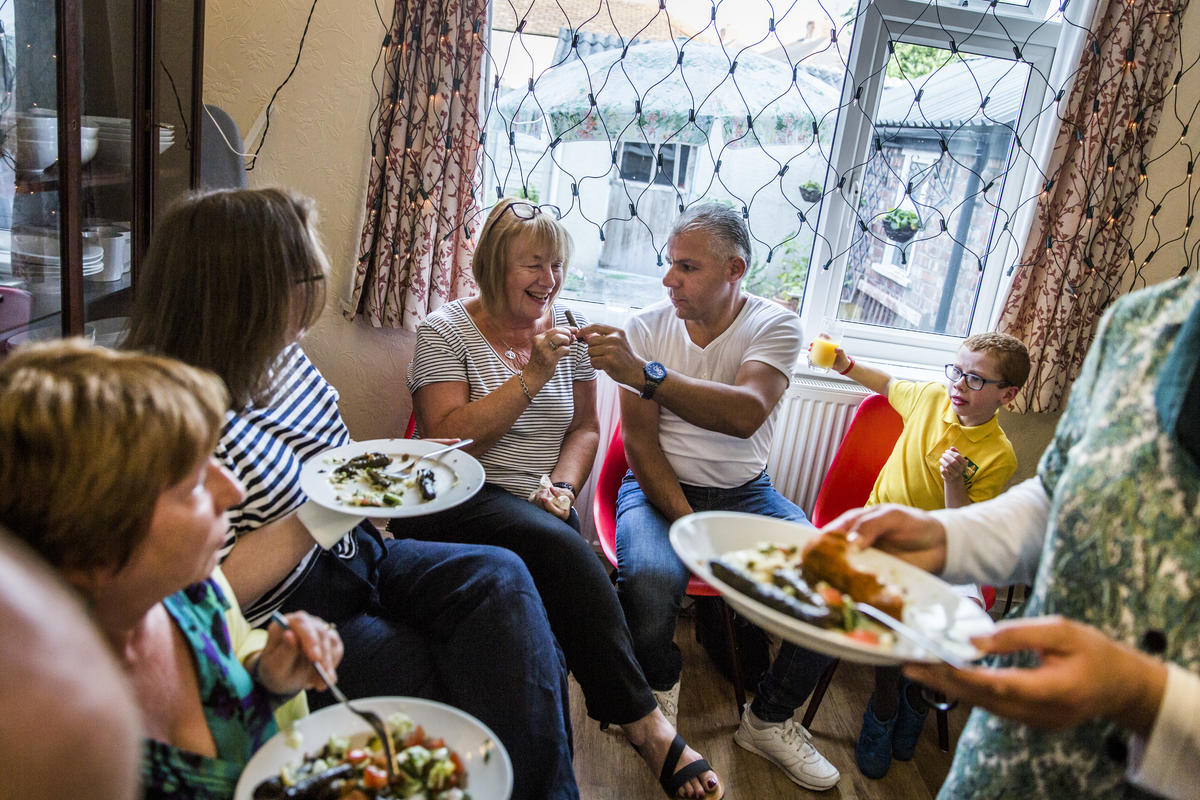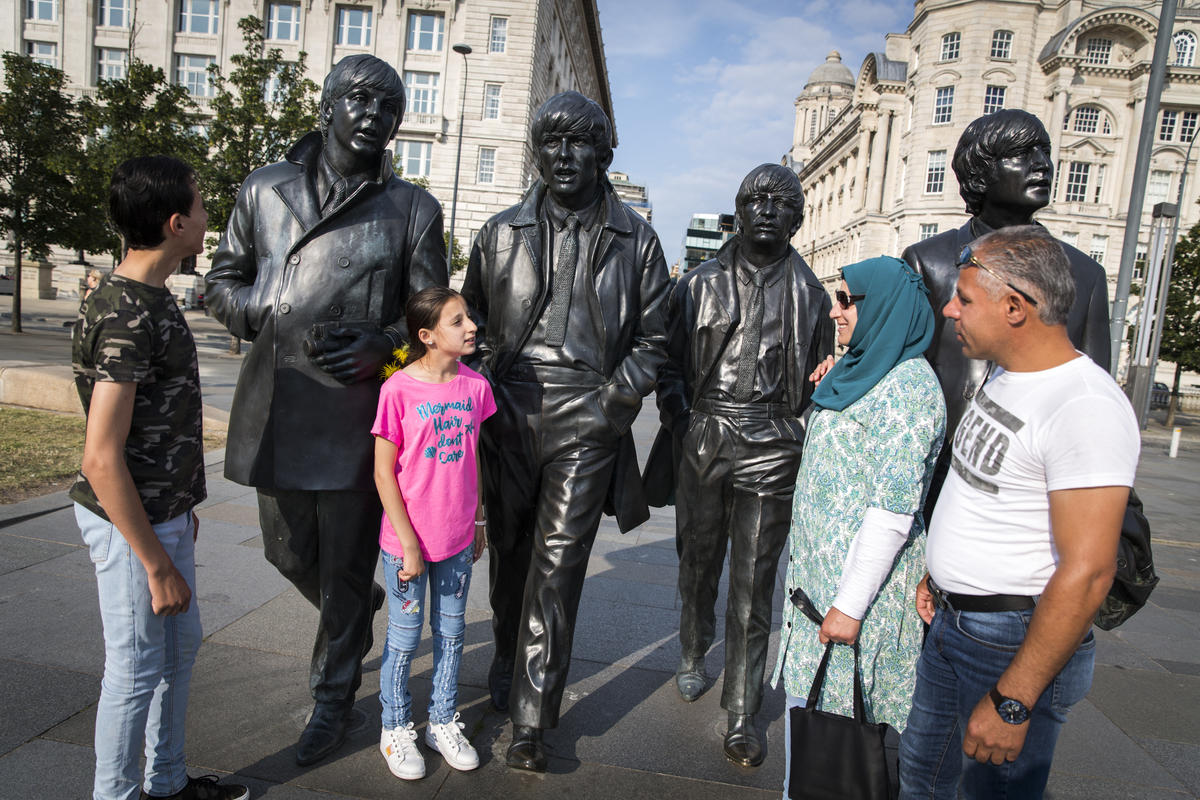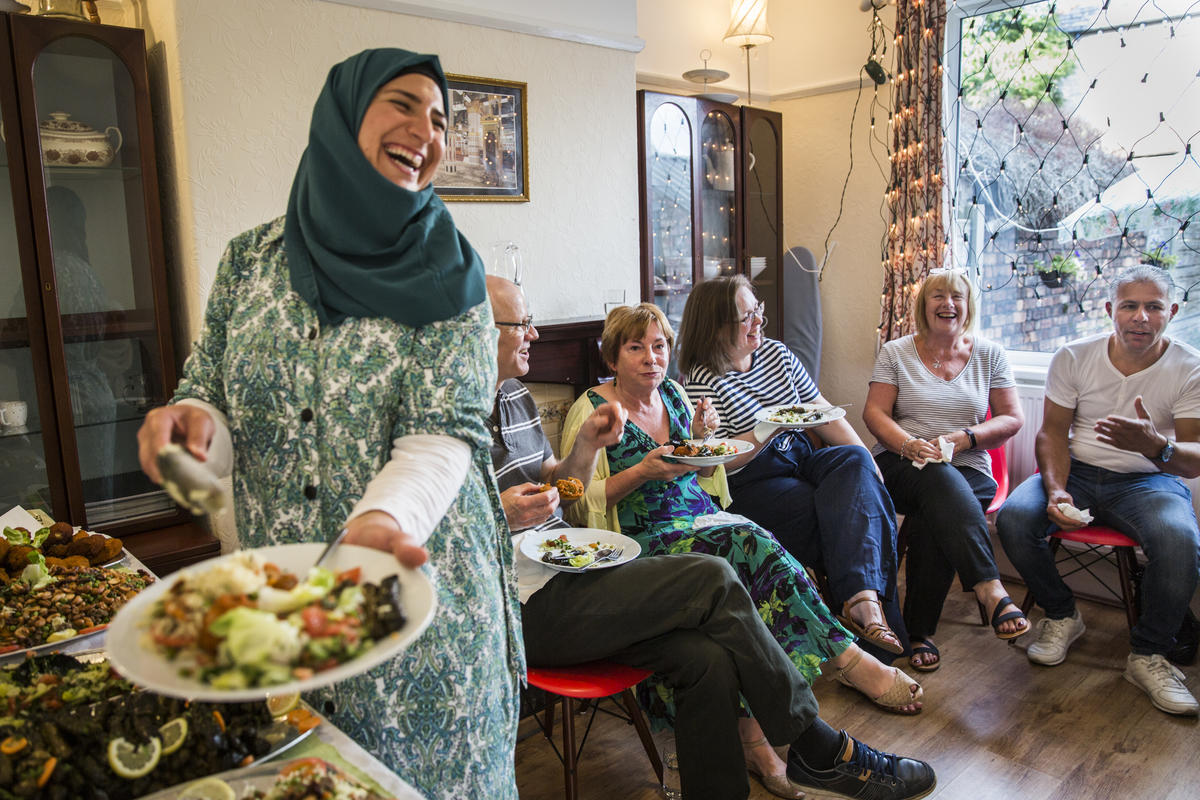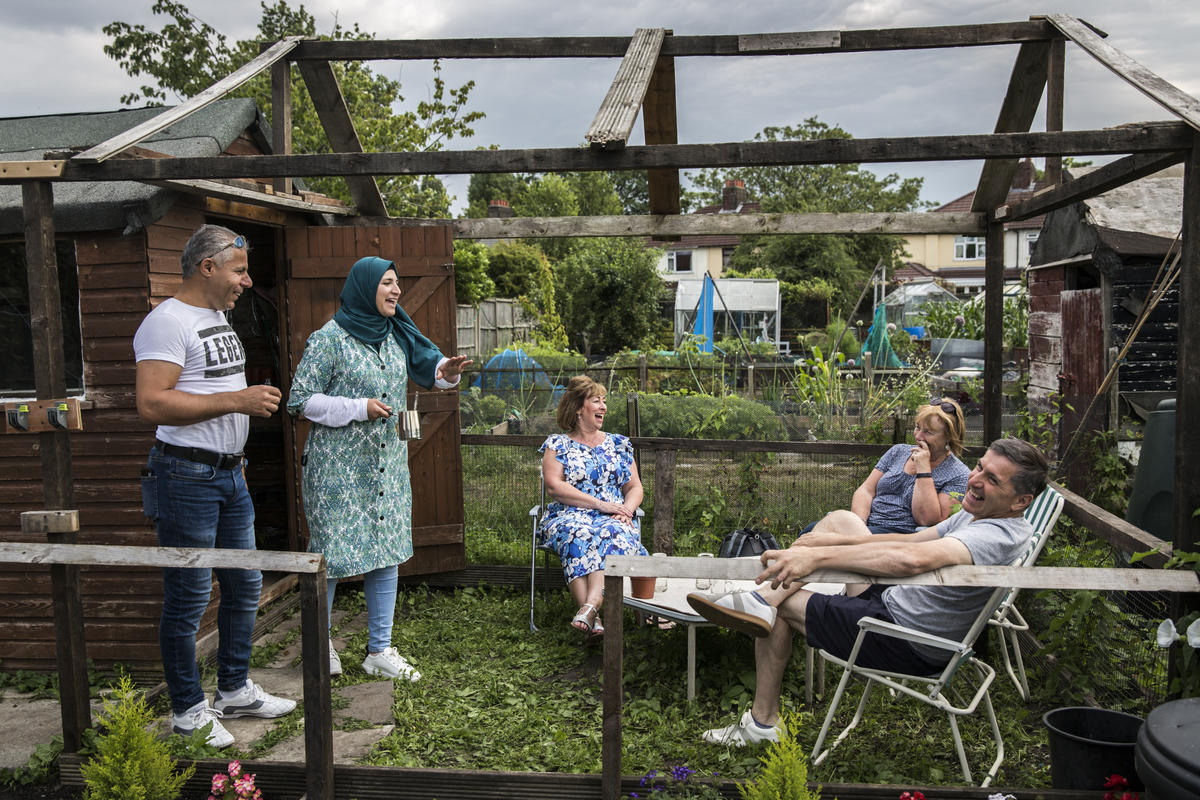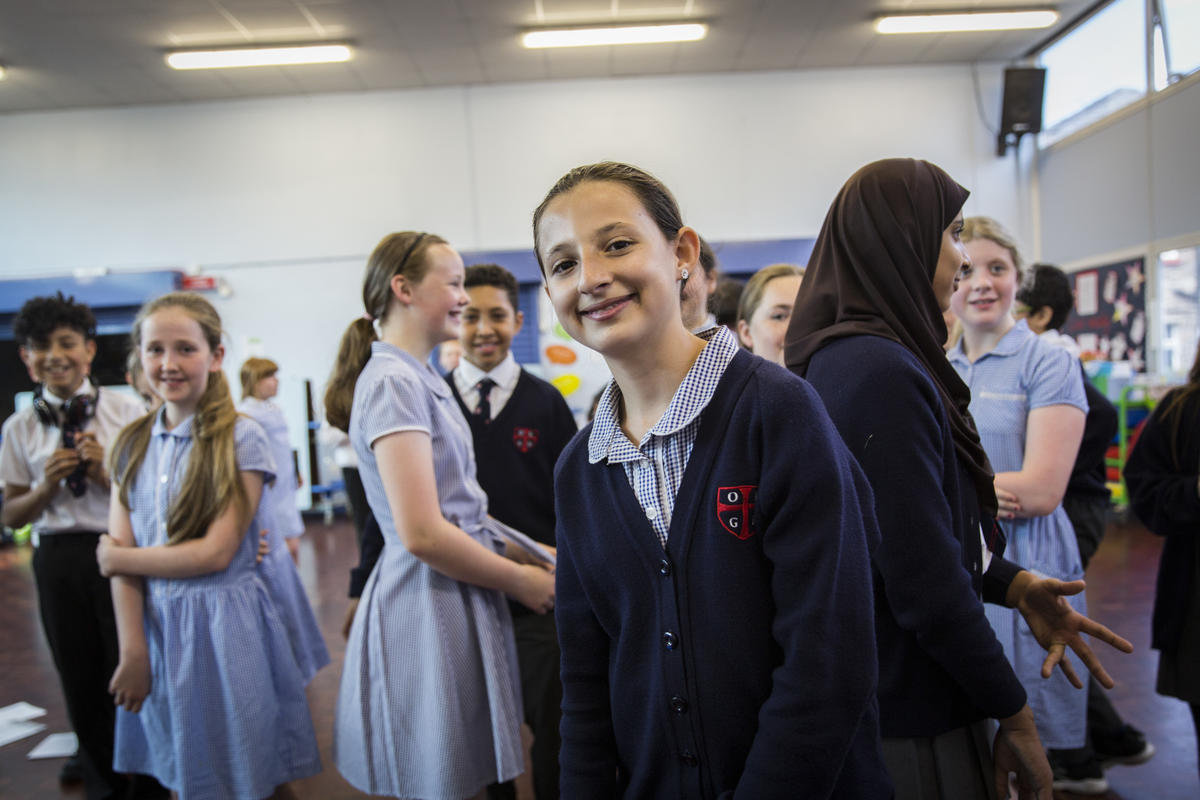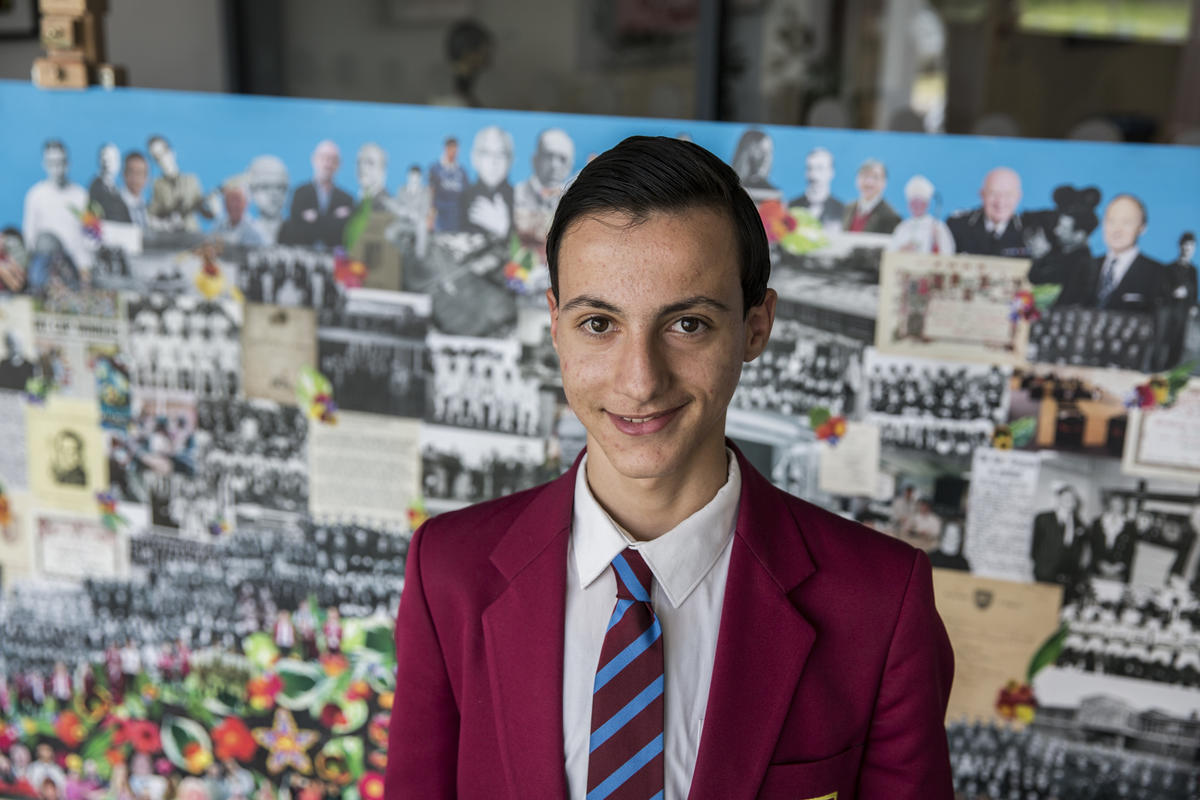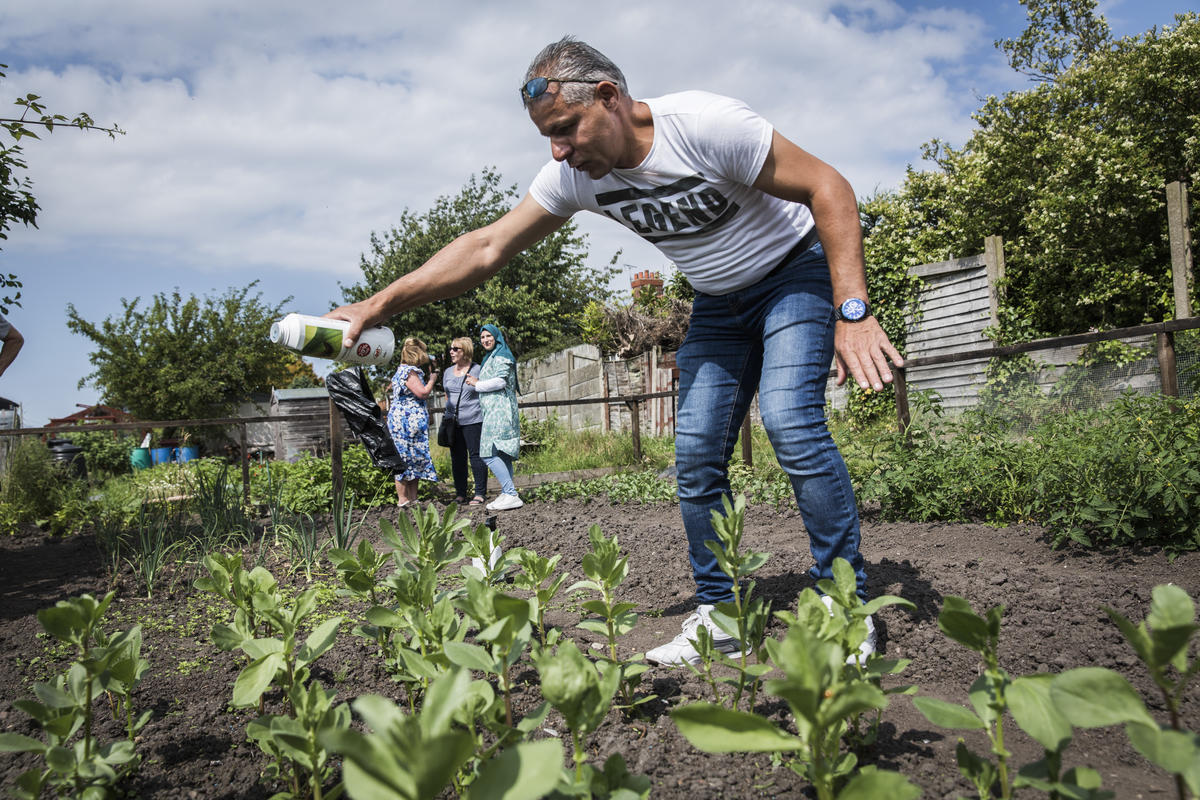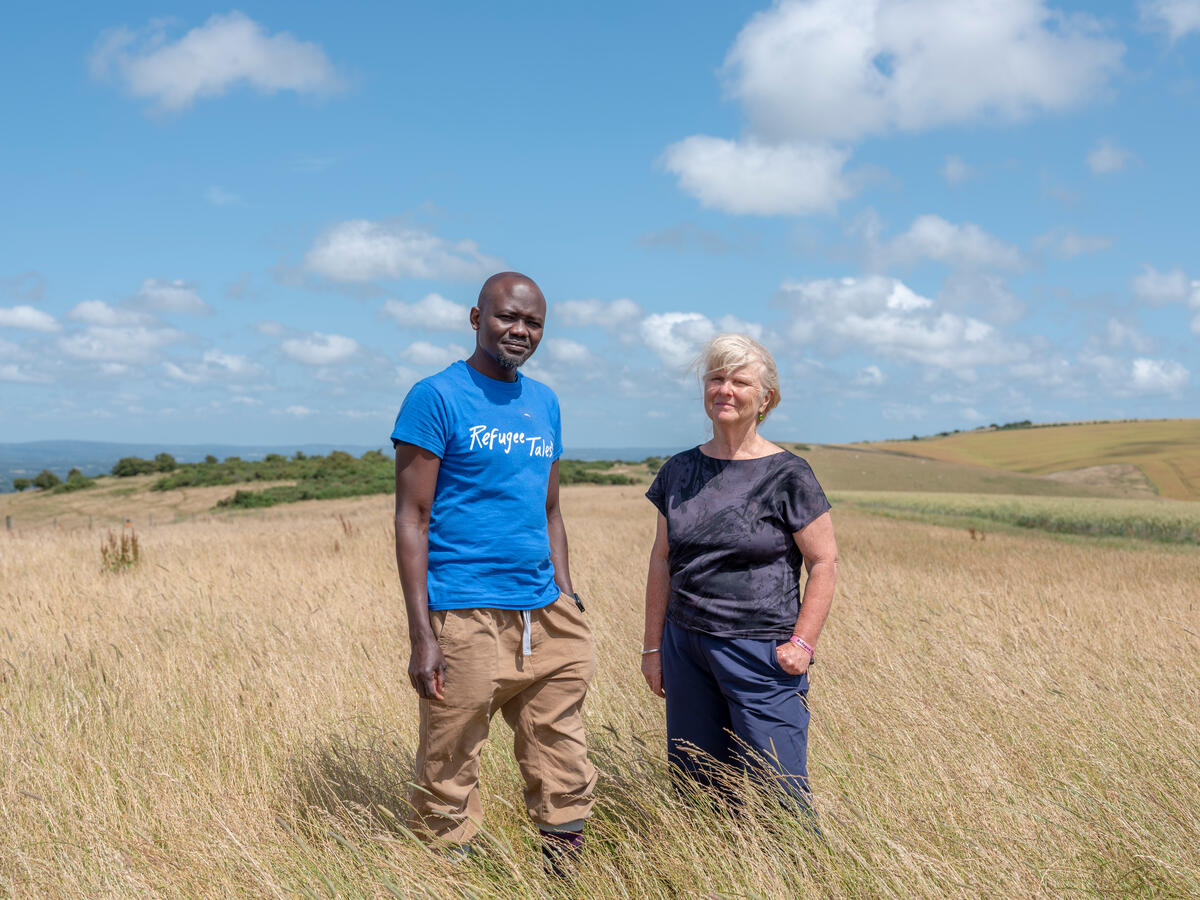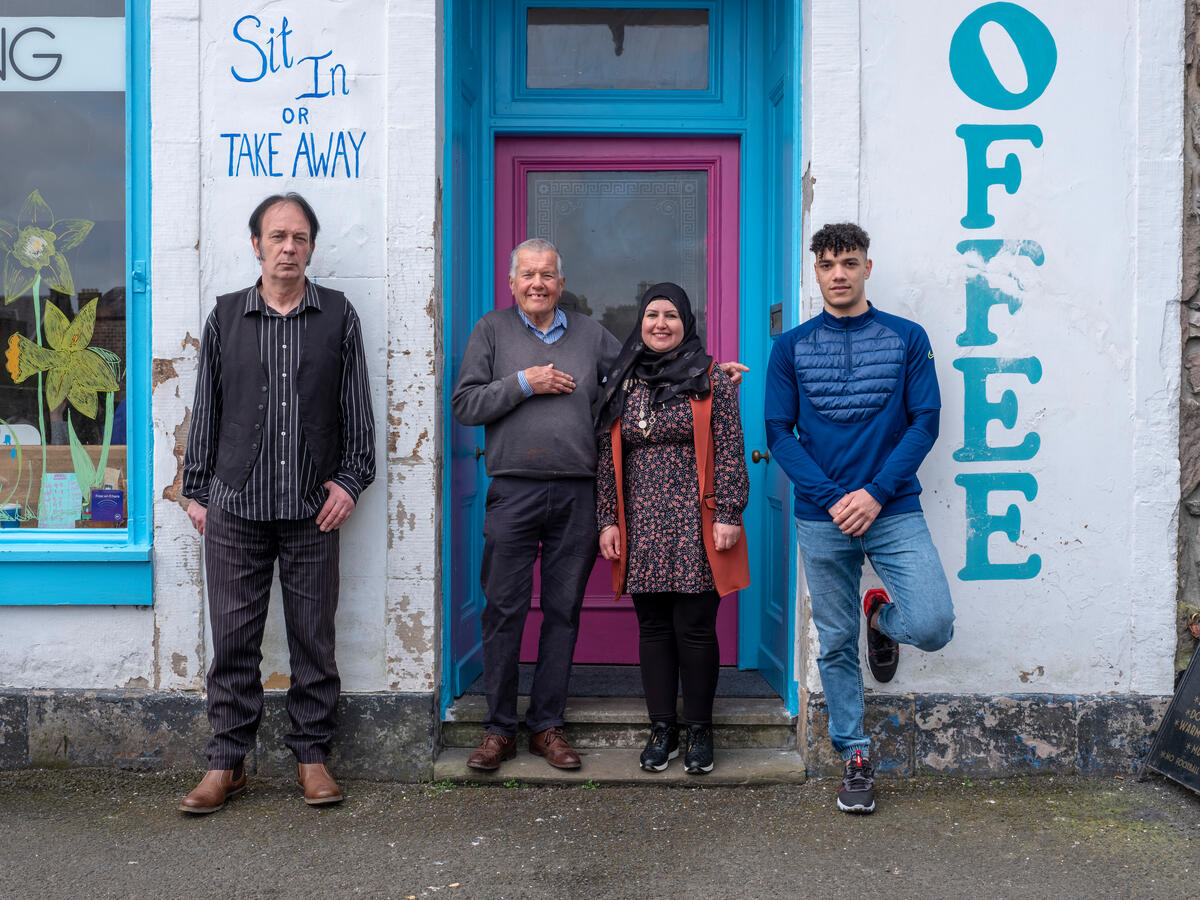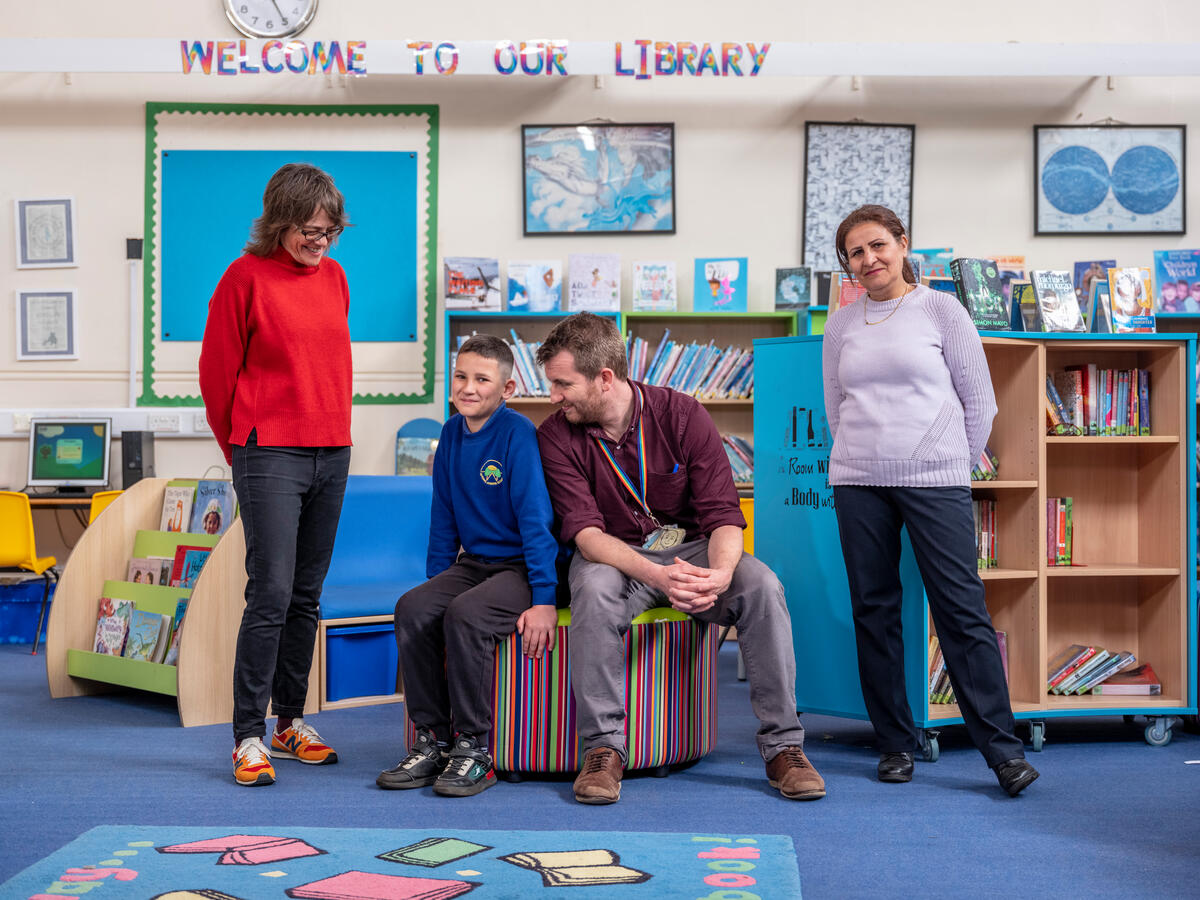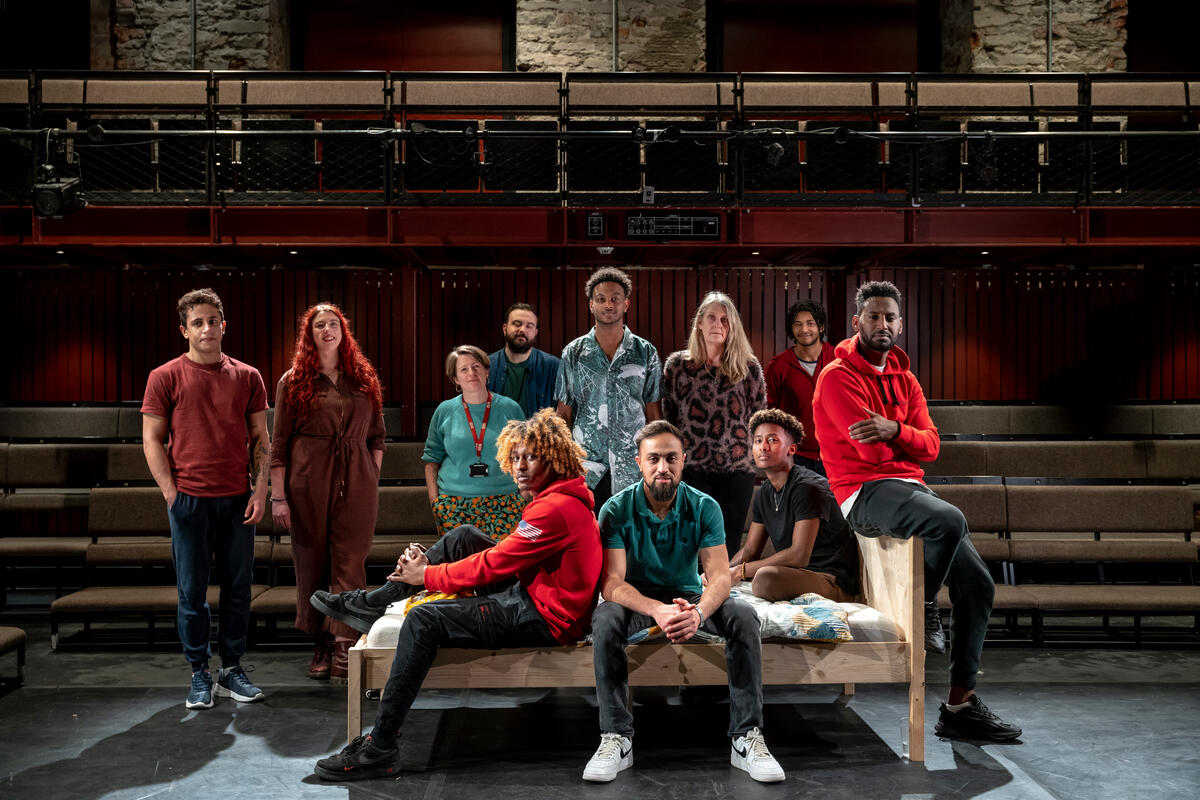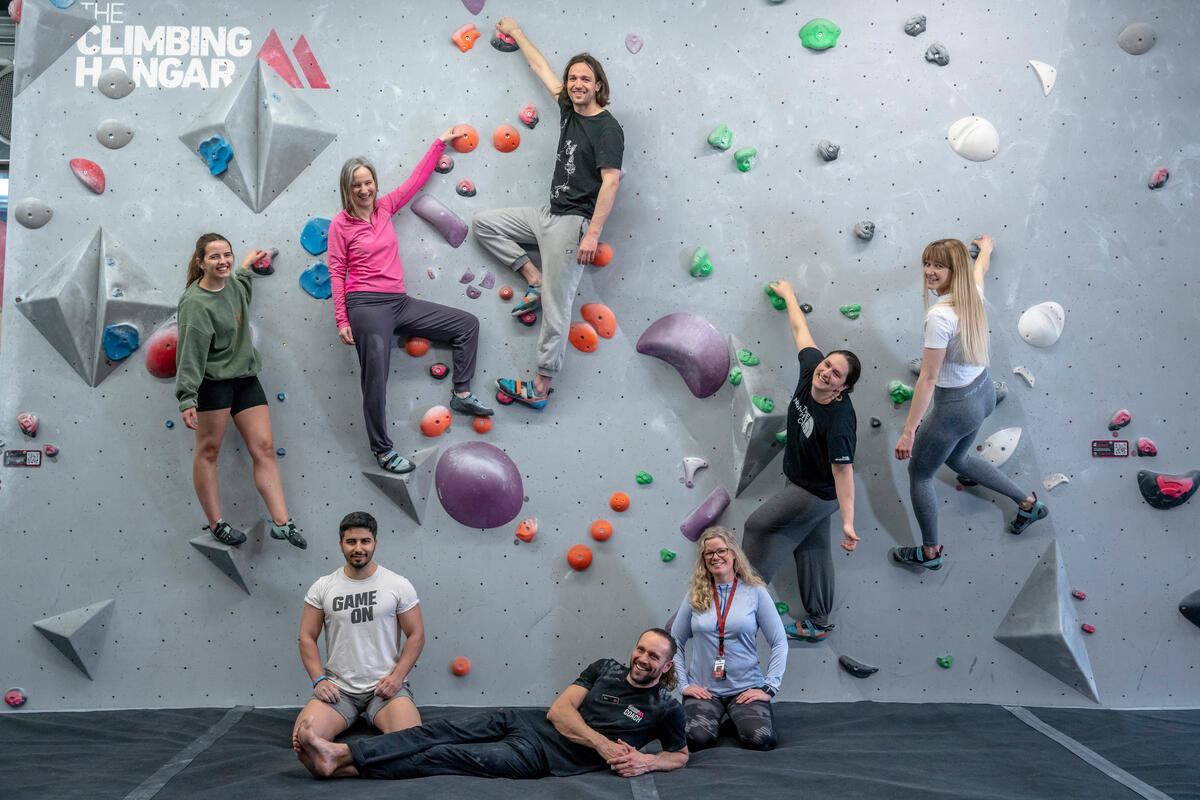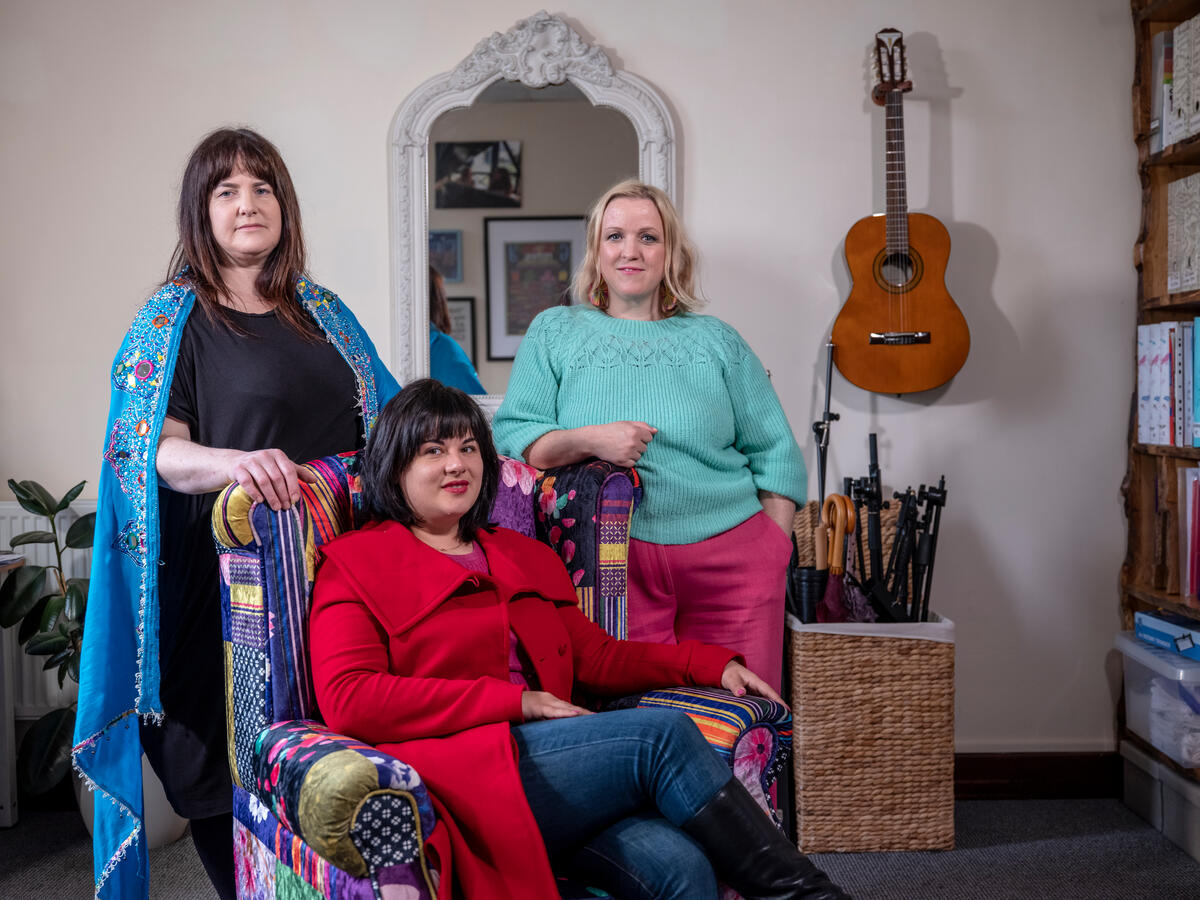'This has had Such a Ripple Effect': Volunteers Help Syrian Family Rebuild in Liverpool
'This has had Such a Ripple Effect': Volunteers Help Syrian Family Rebuild in Liverpool
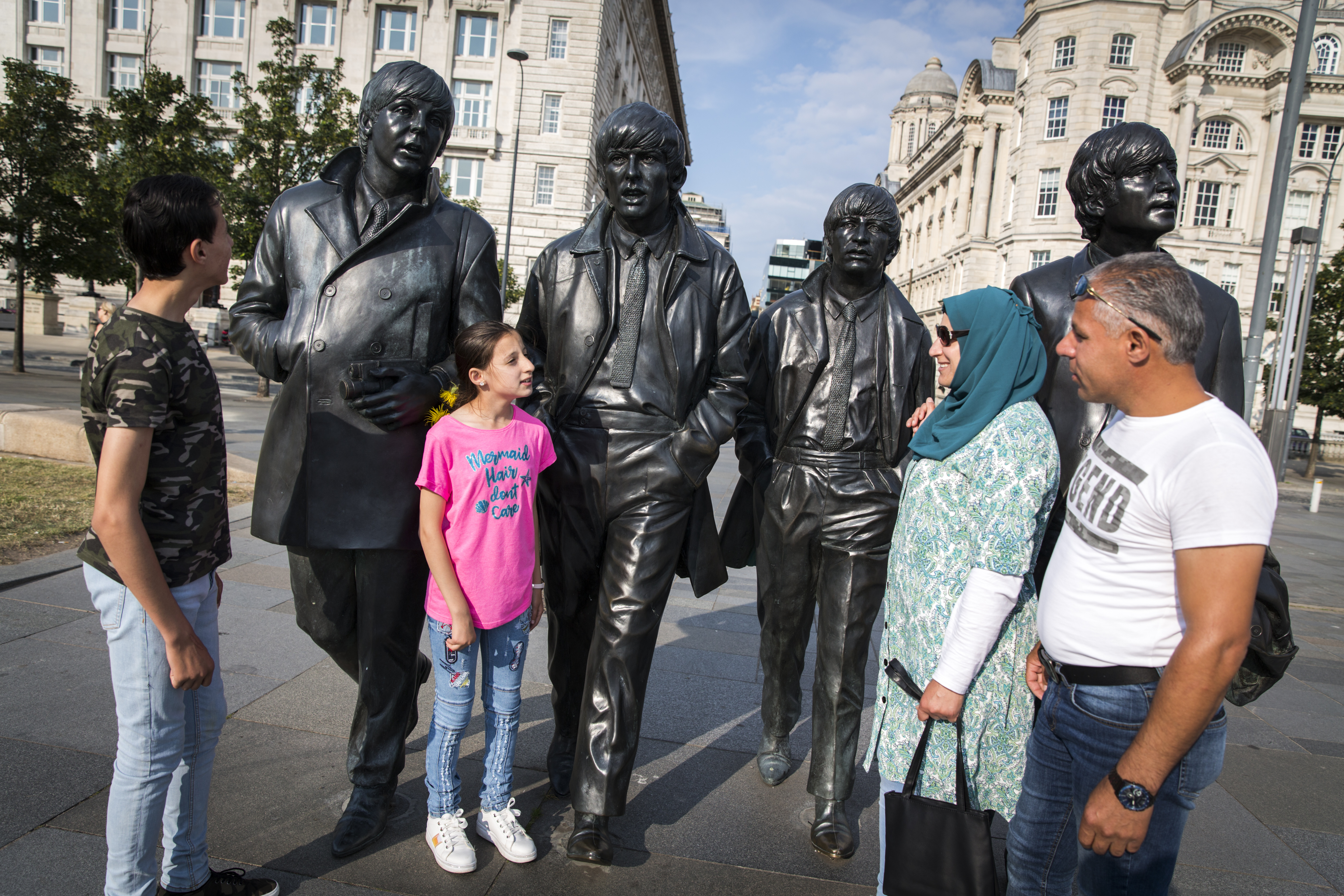
LIVERPOOL, England – Adel Khaled Jhayem, not quite 6 at the time, was wearing his chunky watch. Ismael, his father, packed his hookah and some prayer beads that were given him by his mother. Ola, just 4, slipped in a rag doll called Sham.
But for Ghofran, their mother, practicality was uppermost when the four of them left their home in Zakyah, on Damascus’s southern outskirts, in the pre-dawn dark in April 2013. Instead, she packed two blankets – a gift at the time of Ola’s birth, and a set of cooking pans.
She and Ismael would spend the next five years struggling to raise their family among the million or so Syrian refugees in Lebanon – until one January morning in 2018, when Ismael was woken by the phone.
Ghofran, making breakfast, heard shouting; Ismael leapt out of bed with the news. “It was the UN lady!” he told her. UNHCR, the United Nations Refugee Agency, had facilitated their resettlement to England. It was a stroke of fortune they scarcely dared believe.
Eleven months later, on a wet December night in 2018, the Khaled Jhayem family stepped off a plane in Liverpool, saucepans, watch, hookah and dolls in their luggage, to be welcomed by a group of strangers who had been preparing their arrival for a year.
Set up by the Home Office but funded by ordinary people, the UK’s Community Sponsorship Programme for refugees was quickly embraced in this iconic city, home to The Beatles and a storied football team, once word had reached the parish of Bishop Eton.
Ann Connor, who chairs Bishop Eton Parish Council, made presentations at Masses, which led to an information evening in early 2018. Was there sufficient support to welcome a refugee family?
“Seventy-five people came forward,” said Connor, recalling that pivotal evening. “We had enough doctors to fill a hospital, enough teachers to open a school.”
She and Tricia Brophy, a retired teacher, set up a steering committee. They built teams to handle everything from fund-raising to housing, from social security to schools. Irish solicitor Sean Sexton offered legal advice; Alison Butt brought skills in fund-raising; Joanne and Dr Simon Abrahams added health expertise; and Kathy Bamber led the education work..
Money was among the first challenges; sponsors are required to raise £9,000. Twenty-five people set up standing orders, said Dennis Crowe, a retired insolvency accountant in charge of finances; another 200 or so contributed via donations and special events.
Generosity came from unexpected quarters. A couple in their eighties made a £1,000 donation, while six-year-old girl gave her birthday money in a cheque for £160. Perhaps the most surprising was a donation of £500, a spontaneous gift from the women of the Penny Lane mosque.
“We were so stunned and grateful that they would help a Catholic parish,” said Connor, while the mosque was moved that a Catholic church would help a Muslim family.
Father Tim Buckley, parish priest at Bishop Eton, is still marvelling at the subsequent chain of events. “The mosque has set up a team to help the homeless in town now,” he said. “This has had such a ripple effect.”
Those ripples have extended even beyond church and mosque. A window-cleaner, service engineer and a bicycle repairer, hearing about the Syrian family, both pledged their services free of charge. And Eton Place, a Turkish restaurant in South Liverpool, hosted fund-raising dinners, while its Syrian chef prepared the family’s first meal.
Turgut Olgun, the restaurant’s owner, moved to Liverpool two decades ago from a village on the Black Sea.
“In Turkey, where I come from, there are many Syrian families – when I go back I see them and I wish them much better,” he said. “My reasons to help are that we are human, and it comes automatically from your heart.”
The volunteers have overcome multiple challenges, from finding an affordable home before knowing the size of the family, to equipping every room. Romina Metz, herself an immigrant from Germany, and Eddie McCabe, a project manager, lit on the idea of a “wedding list” as donors came forward with items from a fridge to a flat-screen TV.
Daily language lessons for the parents; primary and secondary schools for the children; assistance with finances and banking; even a welcome book translated into Arabic – all this and more awaited the family’s arrival. Most touching, perhaps, was a framed picture of all four members, pieced together from their passport photos and placed on the mantelpiece.
The latest hurdle for the group to overcome has been Covid-19, which has obviously put major limitations on day-to-day contact.
“Our family understands the issues and is following all the guidance but for them it is a lonely time without seeing us -- their new family -- and at times has made them very anxious,” Connor said. “We text and phone and have visited when we have been allowed, but now we are back to no visits at all.”
She added that recently, though, “the tables have turned and we are the ones receiving messages of support from Ismael and Ghofran, offering to do jobs and shopping for all of us.”
Before the move to the UK, Ismael, a metal worker at the family firm in Syria, had been apprehensive about moving the children “from life to life, and to a different culture.” With none of them speaking any English, he warned them it would be difficult at the start.
But Ghofran said their fears had been allayed. “They have become happy,” she said of Ola and Adel. “The welcome from people was very great.”
Ola, now 11, was surprised to find that sports and art were part of the school curriculum. Already she has won a ‘best player’ trophy in football and performed in Aladdin, her primary school play. But her favourite subject is maths, which she will pursue at high school in September, hoping to study medicine later on.
Adel, 14, already acting as the family translator, loves the smartness of his high-school uniform and already boasts a grade-9 GCSE in Arabic. His first class in England was chemistry, where he learnt about ionic bonding; he, too, hopes to become a doctor, remembering how hard it was to access medical care in Lebanon.
In the meantime, Thingwall Allotments found a derelict plot that the family has already transformed.
“I do not love slugs,” Ismael announced, sprinkling new seedlings with pellets after his entire crop of lettuces was devoured.
His green onions, too, bear signs of attack, but garden pests are unlikely to be to blame. Ghofran, after all, quietly watering the beans, tomatoes and parsley plants, has found good use for her Syrian cooking pans.
|
Refugee Family Gives Back by Cooking Meals for Cardigan Care Workers helping fight COVID-19 |
Syria refugee family are sponsored by locals, helping them re-anchor after the pain of flight from war |
|
First meeting of volunteer group drew over 100 locals; They plan to sponsor another family, once conditions allow |
Bury Locals Sponsor First Refugee Family |
|


